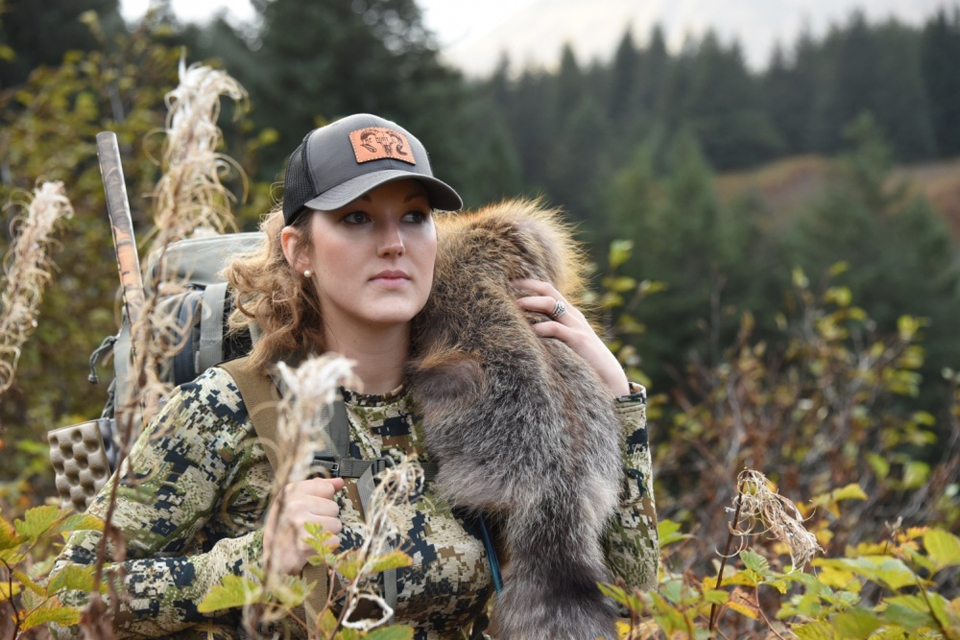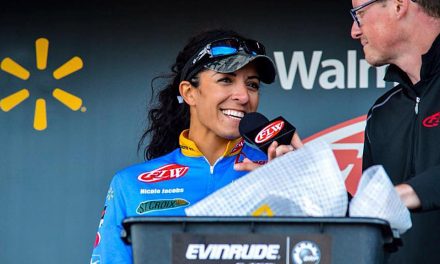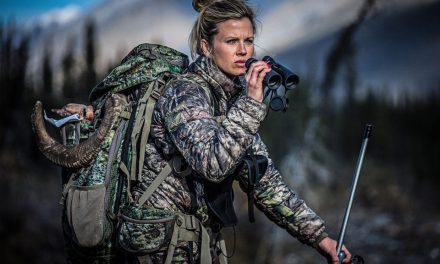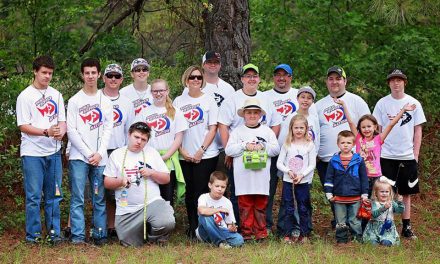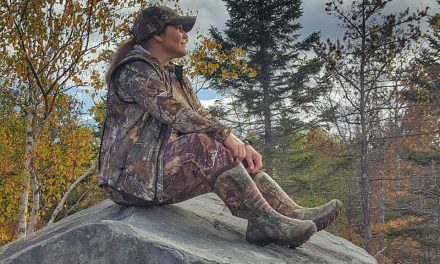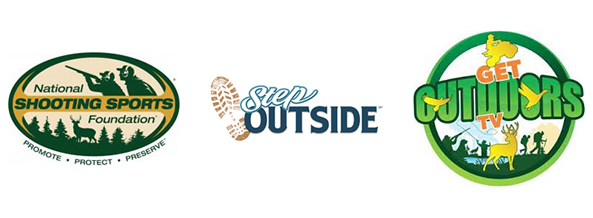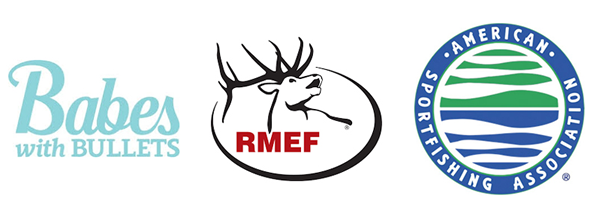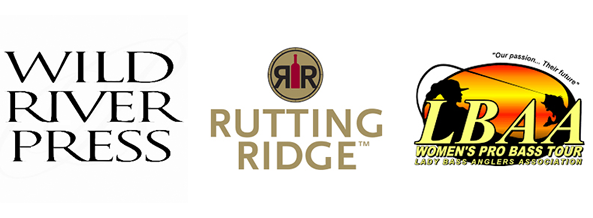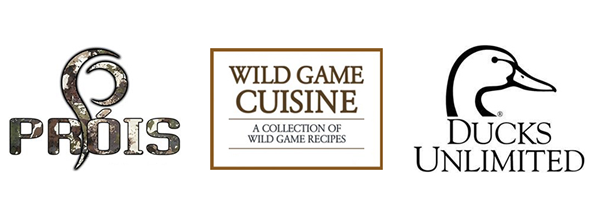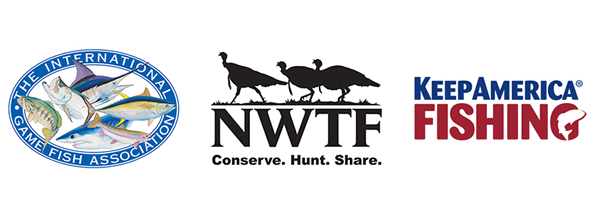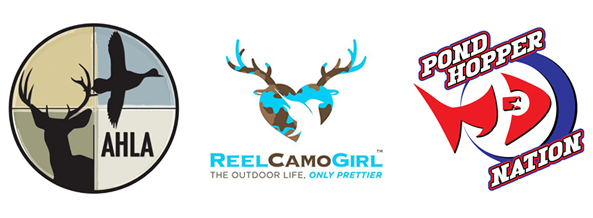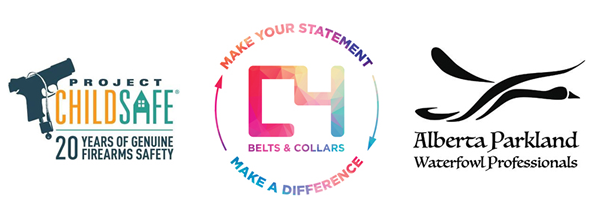For Petty Officer 1st Class Ashley Wallace, a Coast Guard yeoman, occasionally, her blue uniform is hung in the closet and replaced with camouflage, zero degree thermals, and hunting boots. On weekends, she and her husband, Branson layer up and then pack their rifles, emergency signaling devices, and a surplus of food and clothing. They like to escape the daily grind while experiencing some of the world’s best hunting and fishing opportunities in Kodiak, Alaska.
Ashley said when she was a child growing up in a military family in Cheyenne, Wyoming, her father made every effort to immerse the family in the local culture and lifestyle. They went camping almost every weekend, and often, this included hunting and fishing. Hunting has been in Ashley’s blood since those days, and it all began with her father’s steady guidance, she said.
“My dad used to take me hunting with him, and I’d go to what he called ‘man camp,'” Ashley said with a smile. “It was awesome. I got to hang out with a bunch of retired Chiefs. My father was an active duty Coast Guard Chief Damage Controlman at the time, and his two best friends were both recently retired Navy Chiefs. It was very neat to be a female in that world—and to be accepted. I feel like that’s where my love of wildlife really started.” Ashley mentioned that this experience was invaluable for her unforeseen life in Kodiak, where her dreams of Alaskan adventure came to life.
Ashley went from shooting milk jugs with her first shotgun, a 410 gifted to her by her father, to shooting a bow and arrow at targets when she picked up archery in high school. This was the first place she learned to shoot a compound bow. “I’ve been an archer since high school,” said AShley. “When I first came into the Coast Guard, I was in an archery league in Traverse City, Michigan. I was one of the only females in the league, and that kind of lined me up for hunting.”
Ashley said she went to Traverse City for her first tour in the Coast Guard, left for her specialized school for her job as a yeoman, met Branson, and then traveled on to New Orleans and Texas. “My husband and I got orders to Kodiak in 2013 and knew nothing about Kodiak, but we were so excited,” said Ashley. “We started helping teach at North Star Elementary where they were introducing the National Archery School program in town,” said Ashley. “It’s been part of the Alaska school curriculum or extracurricular activities since 2013, where they teach kids how to shoot compound bows. It was a very cool experience to see them fall in love with archery at such a young age, like I did.”
From there, Ashley and her husband got into fishing. But, after the thrill of fishing, it wasn’t long before it gave her an itch to begin hunting, since hunting from a boat is common in parts of Alaska. “I wanted to spread my wings a little bit, so Branson and I bought a boat,” said Ashley.
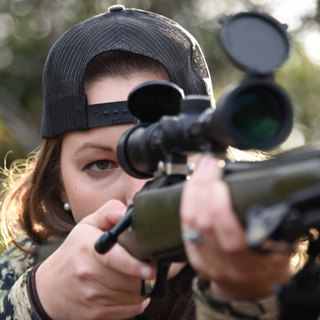 “I think it’s important that they [women] see that you can be the girl that puts on makeup and dresses up, and then all of a sudden you’ve got war paint on, you’re in camo, and guttin’ something and haulin’ meat out,” said Ashley.
“I think it’s important that they [women] see that you can be the girl that puts on makeup and dresses up, and then all of a sudden you’ve got war paint on, you’re in camo, and guttin’ something and haulin’ meat out,” said Ashley.
From there, Ashley and Branson branched out to fox calling, which entails a lot of thought, because foxes are very intelligent animals, often cautious and simultaneously curious. With some beginner’s luck, she got a silver fox on her first hunt.
Next, the couple got into beaver trapping. “I think it’s really important to note the significance of beaver trapping,” said Ashley. “They wreak havoc on the ecosystem. They block off the rivers so salmon can’t get upstream.”
Ashley noted that she and her husband are completely against using foothold traps because they think the traps are inhumane, and they also make every effort to use what they harvest.
When she’s not trapping, Ashley seizes unique opportunities for special hunts. “I just went on two of the most incredible hunts I’ve ever had in my entire life,” she said. “I can check those off my bucket list.” One was a rigorous goat hunt, where they had to battle sketchy terrain, extremely high elevation, sheer cliffs, and the world-renowned Kodiak brown bears.
“Planning ahead is super important,” said Ashley. “You constantly have to be ‘bear-aware.’ You’ve got to know about the weather changes, and that the float plane may not be able to get in to get you back out. We always pack an extra bag, a dry bag with another set of clothes, an extra coat, and extra food for at least two or three days, and we leave that at base camp. We also carry a Delorme, which is a Garmin product that has a built-in map, and we can text on it, too, which is pretty great.”
Hunter safety is paramount in the woods, but there are some big benefits of hunting that tie back into wildlife conservation, Ashley said. “The majority of the money that hunters pay for tags, for guns, for bullets—a portion of that money actually goes back to wildlife conservation,” she added. “It’s important that people realize there is a purpose to it.”
It takes a lot of work, experience, and skill to hunt safely, so Ashley is extremely grateful to have a spouse who loves to hunt as much as she does. She said she couldn’t do it without him. Ashley also really appreciates the native influence on the island, the creativity of the Alaskan people, and the blending of cultures. “You fly out to this island, and you forget all the problems of the lower 48,” said Ashley. “I feel at peace in Kodiak. I’ve never felt so much a part of a community as I have here.”
~By Lauren Dean
LinkedIn
Petty Officer 3rd Class Lauren Dean is a U.S. Coast Guard public affairs specialist, currently stationed in Kodiak, Alaska, where she has served two of her six active duty years in service. Lauren is an avid outdoors enthusiast herself who often hikes with her husky, Kona, adopted from the village of Kivalina. She is one of five active duty Coast Guard public affairs specialists stationed in Alaska who handle media relations regarding search and rescue cases in the rugged Alaskan frontier and on the vast Bering Sea.

